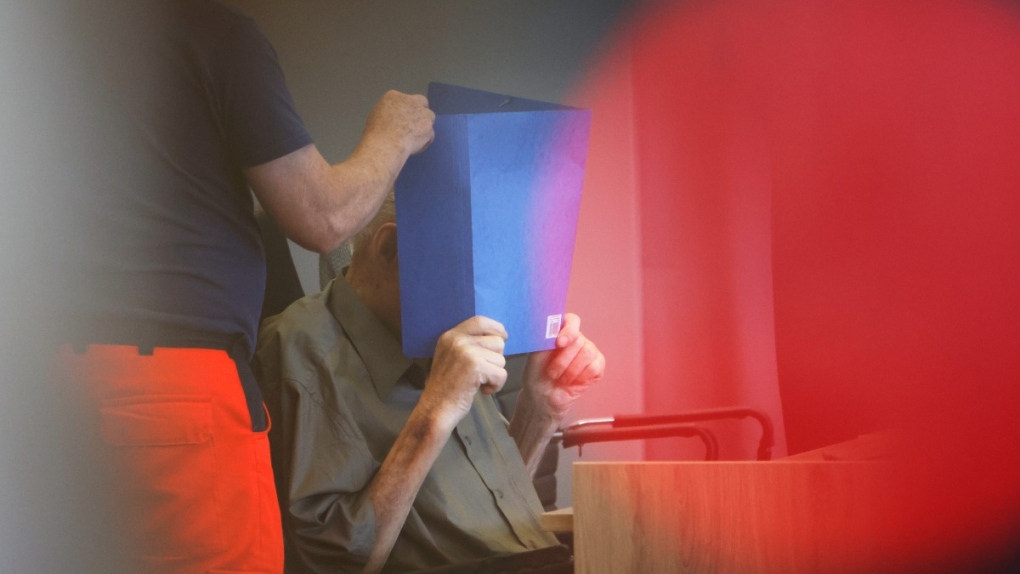BERLIN -
A 101-year-old man was convicted in Germany of 3,518 counts of accessory to murder on Tuesday for serving at the Nazis' Sachsenhausen concentration camp during the Second World War.
The Neuruppin Regional Court sentenced him to five years in prison.
The man, who was identified by local media as Josef S., had denied working as an SS guard at the camp and aiding and abetting the murder of thousands of prisoners.
In the trial, which opened in October, the man said that he had worked as a farm laborer near Pasewalk in northeastern Germany during the period in question.
However, the court considered it proven that he worked at the camp on the outskirts of Berlin between 1942 and 1945 as an enlisted member of the Nazi Party's paramilitary wing, the German news agency dpa reported.
"The court has come to the conclusion that, contrary to what you claim, you worked in the concentration camp as a guard for about three years," presiding Judge Udo Lechtermann said, according to dpa, adding that in doing so, the defendant had assisted in the terror and murder machinery of the Nazis.
"You willingly supported this mass extermination with your activity," Lechtermann said.
Prosecutors had based their case on documents relating to an SS guard with the man's name, date and place of birth, as well as other documents.
The five-year prison sentence was in line with the prosecution's demand. However, the defendant can appeal the court's ruling.
For organizational reasons, the trial was held in a gymnasium in Brandenburg/Havel, the 101-year-old's place of residence. The man was only fit to stand trial to a limited extent and was only able to participate in the trial for about two and a half hours each day. The trial was interrupted several times for health reasons and hospital stays.
Efraim Zuroff, the head Nazi hunter at the Simon Wiesenthal Center's office in Jerusalem, told The Associated Press that the sentence "sends a message that if you commit such crimes, even decades later, you might be brought to justice."
"And it's a very important thing because it gives closure to the relatives of the victims," Zuroff added. "The fact that these people all of a sudden feel that their loss is being addressed and the suffering of their family who they lost in the camps is being addressed ... is a very important thing."
Sachsenhausen was established in 1936 just north of Berlin as the first new camp after Adolf Hitler gave the SS full control of the Nazi concentration camp system. It was intended to be a model facility and training camp for the labyrinthine network that the Nazis built across Germany, Austria and occupied territories.
More than 200,000 people were held there between 1936 and 1945. Tens of thousands of inmates died of starvation, disease, forced labour and other causes, as well as through medical experiments and systematic SS extermination operations including shootings, hangings and gassing.
Exact numbers on those killed vary, with upper estimates of some 100,000, though scholars suggest figures of 40,000 to 50,000 are likely more accurate.
In its early years, most prisoners were either political prisoners or criminal prisoners, but they also included some Jehovah's Witnesses and homosexuals. The first large group of Jewish prisoners was brought there in 1938 after the so-called Night of Broken Glass, or Kristallnacht, an antisemitic pogrom.
During the war, Sachsenhausen was expanded to include Soviet prisoners of war -- who were shot by the thousands -- as well as others.
As in other camps, Jewish prisoners were singled out at Sachsenhausen for particularly harsh treatment, and most who remained alive by 1942 were sent to the Auschwitz death camp.
Sachsenhausen was liberated in April 1945 by the Soviets, who turned it into a brutal camp of their own.
Tuesday's verdict relies on recent legal precedent in Germany establishing that anyone who helped a Nazi camp function can be prosecuted for accessory to the murders committed there.
In a different case, a 96-year-old woman went on trial in late September in the northern German town of Itzehoe. The woman, who allegedly worked during the war as the secretary for the SS commandant of the Stutthof concentration camp, has been charged with more than 11,000 counts of accessory to murder.












































